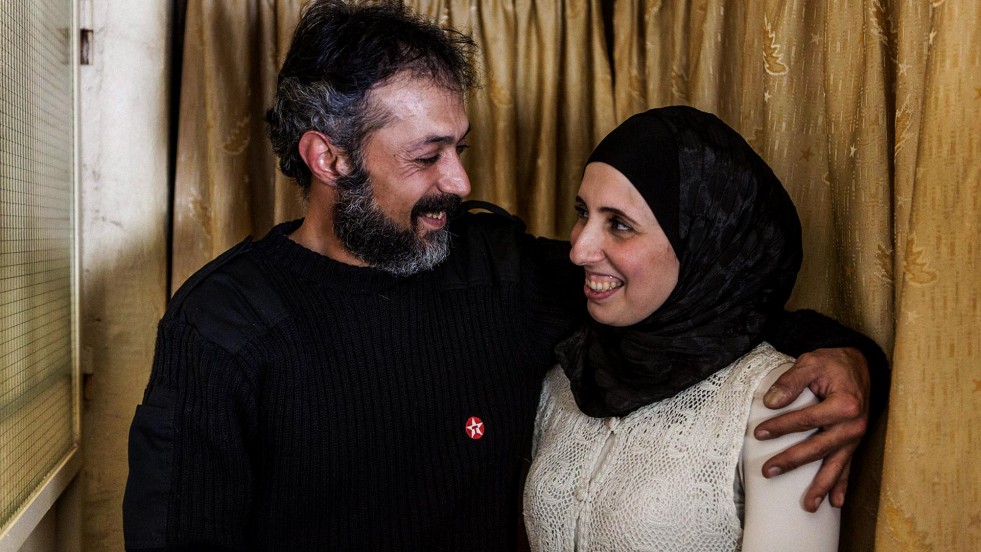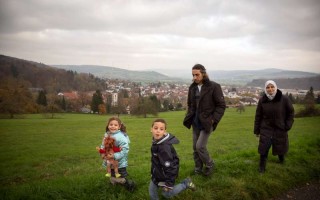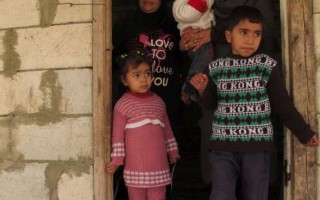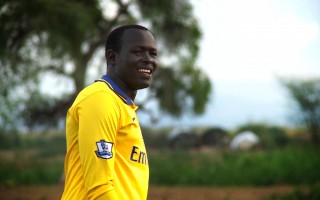I meet a lot of refugees in the course of my work with UNHCR. Some open right up, cataloguing the hardships of life in exile, sharing concerns about their children’s future and even revealing marital problems. Once a woman dragged me to her tent and asked me to shout at her husband so he would not beat her again. Another couple sat me between them over tea and told me in detail why they were not getting along. I was their marriage counselor for the day.
I always think the ones who talk will probably be okay. I worry more about the quiet ones, like Heba.
We first met last year in Lebanon’s Bekaa Valley, at an exhibition of photographs taken by young Syrian refugees. Heba stood out from the crowd. Her big, green eyes were laden with sadness, and she appeared deep in thought despite the festive atmosphere.
I approached her and struck up a conversation about her daughter’s photographs. Slowly she opened up, telling me of her despair at not being able to send her two daughters to school. “Don’t think I am a bad mother, but sometimes I think it was so unfair to have them,” she said with a heavy heart.
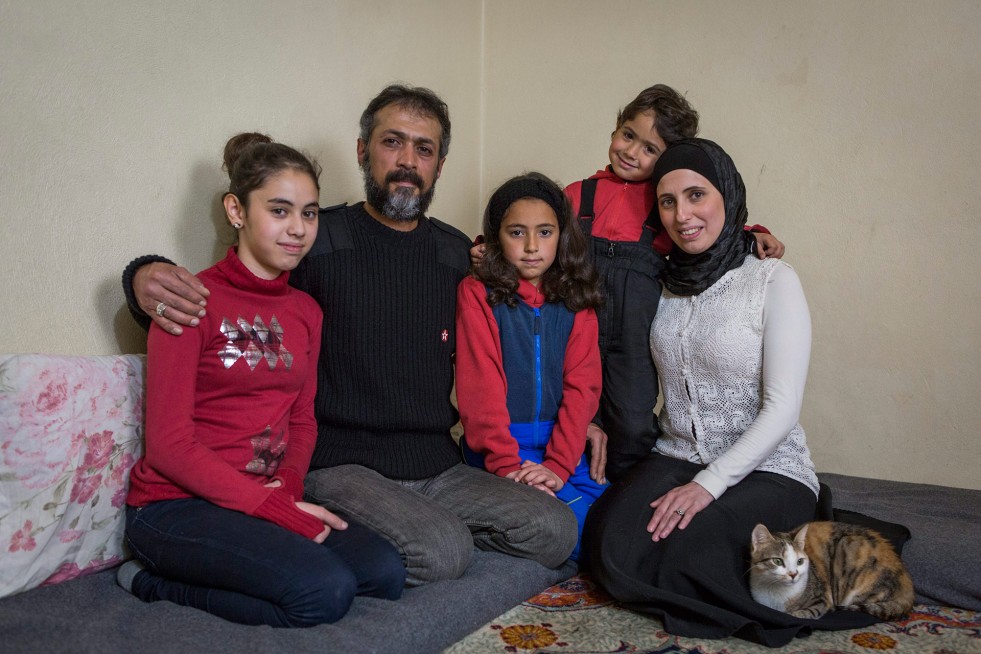
Hassan and Heba pose for a family portrait with their children—Hevy, 14, Asmahan, 9, and Jaafar, 4—in their home in Lebanon’s Bekaa Valley. They fled Syria in 2013. ©UNHCR/Ivor Prickett
Life was different in Damascus, where she and her husband, Hassan, had good jobs and enough money to send their two girls to a good school. A newborn son, Jaafar, made them feel even more blessed.
But the war changed everything. Heba told me about the time her husband, Hassan, was kidnapped for the fifth time. And about the day a bomb fell on their daughters’ school. The girls escaped unharmed, but that was the last straw. The family fled to Lebanon.
They did not register with UNHCR at first because they felt that “others were more deserving of the aid,” Heba says. But two years on, having depleted their savings to pay for rent and food, they, too, rely on aid. To help put food on the table, Hassan has turned to one of his old hobbies, fishing. He goes out each morning—in snow, rain or sun—to catch food for the family.
I still go to see Heba and her family when I can. Meanwhile, we connect regularly through Whatsapp, the instant messaging app, checking up on one another.
As we were saying our goodbyes the last time I visited, Heba gave me a long hug and whispered in my ear: “I don’t know what the coming months and years might bring, but if anything happens to me or my husband, I trust only you in Lebanon to look after my children.”
What do you say to that? I stood there with a tear in my eye, reassuring her that they will all be fine.
Since then, Heba has managed to put her girls in school. Hassan continues to fish, with variable luck, and Heba and I continue to talk online, looking forward to the next time we can meet face to face.
By: Warda Al-Jawahiry



